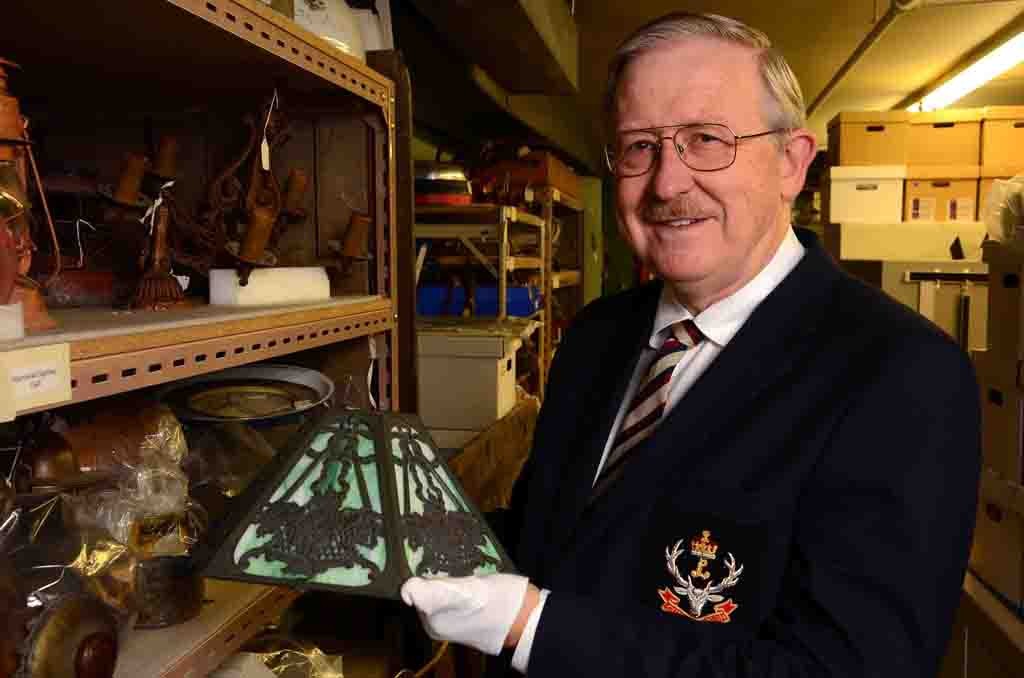
My name is Colin MacGregor Stevens and I worked in museums, archives and historic sites for about 48-years (as of 2024-09-1), mainly as a Curator. I studied museology at university and took many training courses during my career. I worked at sixteen facilities, including historical societies, maritime museums, military museum, police museum, city museums, city archives and national historic sites. I worked in most types of museum jobs, from summer student, to tour guide and all the way up to Manager and Executive Director. As a result I have gained a wide variety of experience. I have also visited well over 200 museums across North America and in Europe.
“Those who do not know the past are condemned to repeat history.” Sadly I see the same mistakes being repeated over and over again. The price of these needless mistakes is dysfunctional buildings, wasted resources many thousands ( and dare I say millions) of dollars, endangered collections, lost history and burnt out staff.
When I started out in the museum field, we learned from teachers, books, courses and above all, from mentors – people who had worked in the museums and archives field for decades. My generation felt that we knew everything the day we retired. Today’s generations seem to believe that they know everything the day that they graduate and what they don’t know, they can look up on the Internet.
One can ask, WHO are the instructors in museum studies at the universities? Who created the Internet and wrote the articles that are there? The answer is – my contemporaries. 😉
I do wonder about some (not all) university instructors whom I never saw at provincial or national museum conferences. Some are excellent I am sure, but some seem to have never left university after graduating. How much practical museum experience will they have? Working in a university museum is very different from working in museums out in “the real world.”
WHO writes the text books? My mentors, predecessors and my contemporaries.
One can also ask WHO writes the web pages on the Internet. The answer is of course anyone. Whatever you do, don’t trust Wikipedia! At least with the Encyclopedia Britannica and textbooks, we knew who the authors were and that they had been vetted. I recently made a major correction to a Wikipedia page written by a Russian (or by a Russian sympathizer) who blandly stated that the USSR had not entered World War II until Nazi Germany invaded the USSR on 1941-06-21. This was a blatant lie. The USSR was an ally of Nazi Germany and invaded Poland in September 1939, thus entering the war. About 2 years later, Germany turned on its ally.
One argument I have heard is that everything has changed with computers and that the old ways are not worth studying. Yes, there have been a lot of changes and I oversaw the introduction of computers into several museums, the creation of database records and I have seen tremendous progress in some ways. Tools and techniques change, but the principles remain the same.
Well, if you can’t beat them, join them. On these web pages I shall share some “lessons learned” in my long museum career. You may well not agree with what I write, but at least you will know my background and can judge the source’s validity for yourself.
I WORKED IN THE FOLLOWING:
- Dartmouth Heritage Museum, N.S. (Volunteer)
- Seaforth Highlanders of Canada Museum and Archives (I started it in 1972 and ran it for 13 years on three “tours of duty”. It is now an official Canadian Forces Museum), Vancouver, B.C. (Curator) Between 1972 and 2011
- Vancouver City Archives, B.C. (Summer student employment program)
- Vancouver Centennial Museum, B.C. (Summer student employment program)
- Vancouver Maritime Museum, B.C. (Summer student employment program)
- St. Roch National Historic Site, Vancouver, B.C. (Historic Interpreter) 1974 – 1978
- Battleford National Historic Park, Saskatchewan (Interpretive Officer) 1978-1982
- Batoche National Historic Site , Saskatchewan (Interpretive Officer) 1978 – 1982
- Cumberland Museum, Cumberland, B.C. (Curator) 1982 – 1984 approximately
- Estevan National Exhibition Centre, Saskatchewan (Executive Director) 1984-1986 approximately
- Burnaby Village Museum (and Archives), Burnaby, B.C. (Curator) 1986 – 2005
- New Westminster Museums and Archives, New Westminster, B.C. (Manager/Curator/Archivist 2005 – Dec 2011 when I retired.
- New Westminster Museum
- 1865 Irving House
- New Westminster Archives
- Samson V Maritime Museum (1930s wooden paddle-wheeler, still afloat)
- New Westminster Police Museum
- 12 Service Battalion Museum (the unit was renamed 39 Service Battalion in Richmond, B.C. I volunteered starting in 2017 and in mid-2018 was appointed Curator)(Volunteer)
- Museum of the Royal Westminster Regiment – 2020-2021. I am acting as a Museums and Archives Advisor to them as they have had a changeover in museum volunteers.
CONTRACT WORK & APPRAISALS:
- Royal Canadian Artillery Museum, Shilo, MB (Million dollar Dr. William Gregg vehicle collection)
- 15 Field Regimental Museum (WWII Field Artillery Tractor)
- Canadian War Museum (Various appraisals including a Sherman Tank, Ferret Scout Car, Lynx Recce Vehicle, Chinese Cannons, pilot model 15 Cwt truck in 2019 etc.)
- Osoyoos Museum (All of their military artifacts)
- Richmond Museum /Steveston Museum (Inventory of Steveston Museum’s Collection)